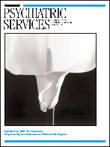A compilation of essays, Trauma: Life Stories of Survivors addresses the life-long impact of traumatic experiences. The authors come from seven different countries and possess expertise in anthropology, sociology, psychology, and oral history.
The book is divided into two sections, and the first section consists of nine case studies. The first case study by Gadi BenEzer defines the use of life stories. BenEzer defines life stories as an approach to a trauma history that allows for contradictions as well as complexities to coexist within various parts of the story. Furthermore, life stories facilitate the communication of intimate experiences and feelings that are otherwise difficult to express. In contrast, BenEzer states, questionnaires and question-and-answer models force a person to classify his or her reaction into one category. Each of the case studies focuses on particular events that illustrate the potential and the limitations of life stories in revealing and unraveling trauma. These studies focus on a wide variety of trauma within social and political contexts in Africa, Europe, South America, and the United States. The importance of ethnic identity, the experience of suffering, and the presence of bravery and inner strength are discussed. The studies also address the collective memory of trauma versus the individual memory of trauma as well as how these memories are constantly reshaped and restructured within the communication of life stories.
The techniques delineated in these case studies will strengthen the listening and interviewing skills of clinicians or researchers working with traumatized individuals. In addition, community psychiatrists and those who practice cross-cultural psychiatry will find valuable information on the performance of clinical and research interviews, development of appropriate research methods, barriers to collecting a life story, transference and countertranference, and access strategies to a nonnative community.
The second section consists of two debates and three review articles. The first debate discusses the ability to completely repress important events from one's memory and the implications this has for one's autobiography. The second debate argues the significance of the life story approach in understanding how a person is affected by trauma in the long term.
The review articles provide the reader a direction for further study, and four works are reviewed.
The editors' proficiency in women's history, oral history, literary subjects, and interviews provide a solid framework for this constellation of essays. This multicultural work confirms that an acute event not only causes trauma but that persisting social conditions also add to this trauma. The telling and retelling of these stories within this work encourages the reader to consider the many aspects of life affected by traumatic events.

